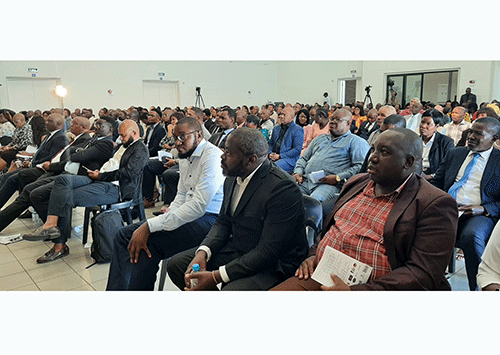WALVIS BAY – The realities and challenges that come along with urban migration was once again highlighted during the ongoing Association for Local Authorities in Namibia seminar on housing and land delivery.
The Erongo region, which is regarded as the country’s economic hub, faces a mammoth task to address the challenges presented by rapid urbanisation, from those seeking jobs.
In Swakopmund and Walvis Bay, urbanisation not only affects service delivery but also creates informal settlements and backyard shacks in the towns, which presents an array of challenges including rapidly spreading fires and various social ills.
The two towns’ combined housing backlog stands at over 58 000 housing units. Walvis Bay needs at least 36 000 housing units to address their backlog while Swakopmund needs about 22 000 housing units, according to figures provided during the seminar by the Erongo governor Neville Andre.
“It is against this background that we face a massive housing backlog and we are still far from addressing it,” Andre explained.
Swakopmund came up with concepts such as the 40-40 housing concept for the low-income groups, and utilised the build-together programme to address the housing challenge.
A further 600 houses constructed under the mass housing programme are currently also being completed to lessen the housing backlog in the town.
The governor is hoping that the seminar can look at other solutions for decongesting backyard shacks and also find a way to abolish some of the building regulations, which only allow certain building materials to be used during construction.
Namibian Association of Local Authority Officials ( Nalao) president Moses Matyayi echoed the same sentiments, saying new and innovative methods need to be explored to fast-track the delivery of serviced land and housing.
“We must come up with methods that are sustainable and meet the needs of our people through strategic collaboration and intergovernmental partnerships. I believe that providing someone with safe, secure tenure and a home is one of the biggest interventions that we can make in terms of improving the lives of all our people in Namibia,” Matyayi said.
He said as political leaders, they should be able to collaborate and work together to restore the positive public image of the sector and provide consistent responsive and effective services to Namibians.
According to the World Bank, Namibia’s urban population is expected to increase from 52% to 60% by 2030.
It indicated the country is experiencing annual urbanisation of around 3.8%, translating to 50 000 people or 13 500 new urban households, annually.
The country’s total backlog stands at 300 000 housing units, hence Namibia should construct around 30 000 houses annually.


